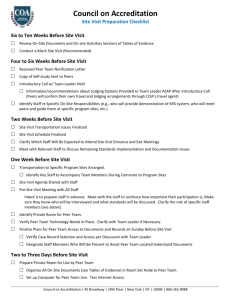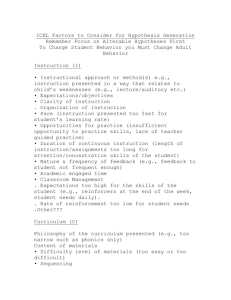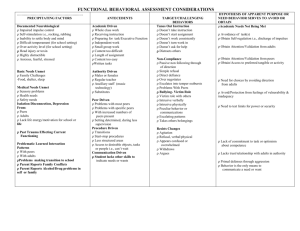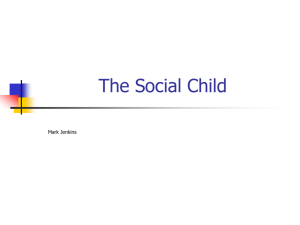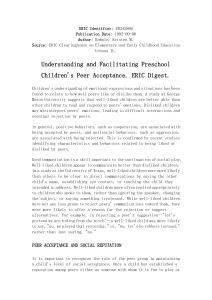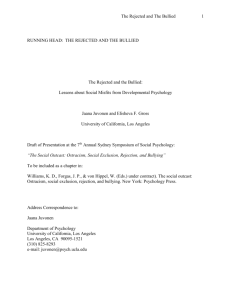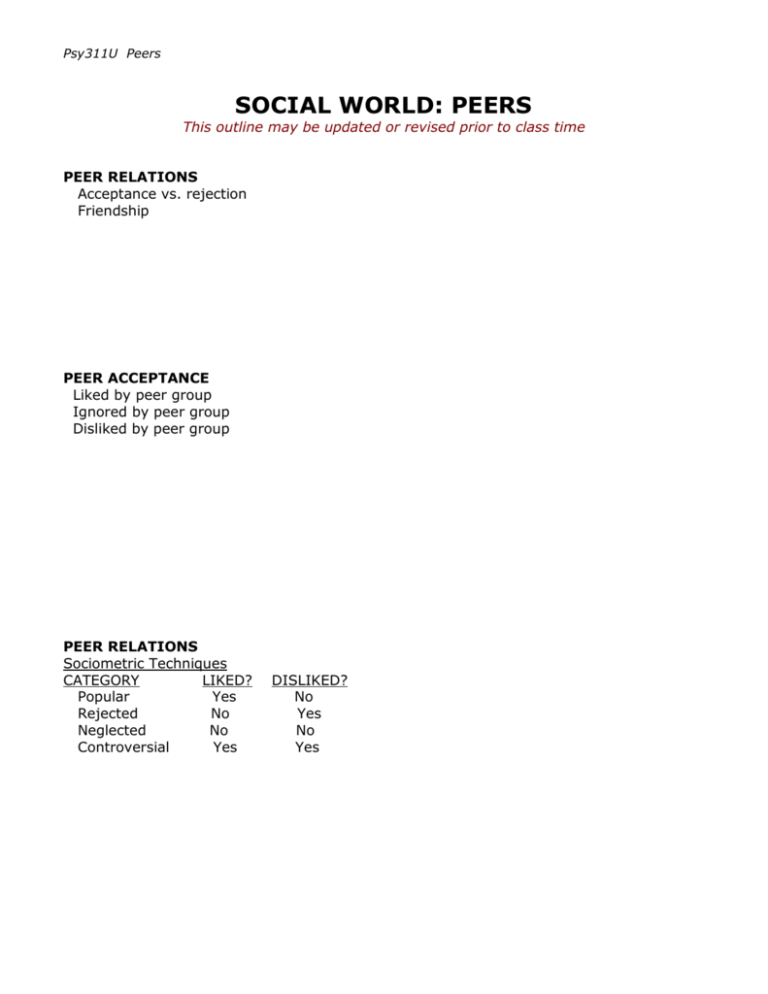
Psy311U Peers
SOCIAL WORLD: PEERS
This outline may be updated or revised prior to class time
PEER RELATIONS
Acceptance vs. rejection
Friendship
PEER ACCEPTANCE
Liked by peer group
Ignored by peer group
Disliked by peer group
PEER RELATIONS
Sociometric Techniques
CATEGORY
LIKED?
Popular
Yes
Rejected
No
Neglected
No
Controversial
Yes
DISLIKED?
No
Yes
No
Yes
Psy311U Peers
PEER RELATIONS, cont’d.
ACCEPTANCE
Cooperation
Social rule following
Conformity
Physical Attractiveness
REJECTION
Aggression
Deviance
Different-ness
Reputation
PEER REJECTION
1. Peer Rejected Children
A. Show traces of psychopathology
B. Behave differently
– Aggression
– Withdrawn and solitary
– No social chat
– Disruptive and uncooperative
C. Have reputations with their peers
2. Coaching Rejected Children
A. Social skills
B. Self-evaluation
C. Affects popularity immediately
– has effects one year later
Psy311U Peers
PEER REJECTION, cont’d.
3. Socially isolated children improve when playing with YOUNGER peers.
FRIENDSHIP
More important than popularity
As important as parents to development
– parents- complementary, authority
– peers- reciprocal, equal
CONSEQUENCES OF FRIENDSHIP
1. Social development
– social skills
– social relationships: affection, helping
– conflict resolution: negotiation
2. Emotional development
– comfort
– perspective taking
Psy311U Peers
CONSEQUENCES OF FRIENDSHIP, cont’d.
3. Physical development
4. Intellectual development
SEQUENCE OF RELATIONSHIPS
FROM PEERS TO FRIENDS
1. Early childhood
– Mixed sex groups
– Changing pairs
–
–
–
–
–
2. Middle childhood
Single sex groups
Peer groups- sex segregated
Girls- intensive
Boys- extensive
Friendships
Psy311U Peers
3. Adolescence
– Peer groups
– Partners
FRIENDSHIP DURING ADOLESCENCE
Friendship
One-sided to reciprocal
Joint activities to emotional bonds
Common interests to sympathy, loyalty, & trust
Partners
Copyright © Ellen A. Skinner - All Rights Reserved
Page Last Modified 2/02/05




